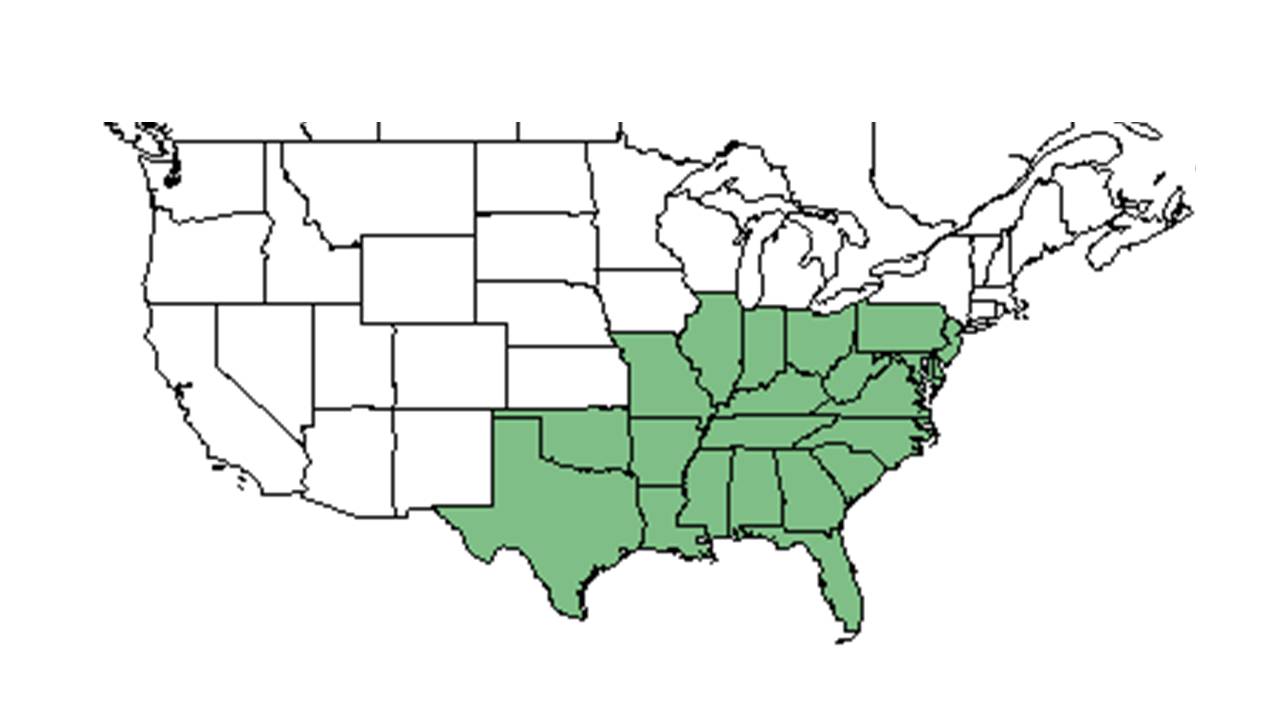Andropogon gyrans
| Andropogon gyrans | |
|---|---|

| |
| Scientific classification | |
| Kingdom: | Plantae |
| Division: | Magnoliophyta - Flowering plants |
| Class: | Liliopsida – Monocotyledons |
| Order: | Cyperales |
| Family: | Poaceae ⁄ Gramineae |
| Genus: | Andropogon |
| Species: | A. gyrans |
| Binomial name | |
| Andropogon gyrans Ashe | |

| |
| Natural range of Andropogon gyrans from USDA NRCS Plants Database. | |
Contents
Description
Elliott's bluestem
Distribution
Ecology
Habitat
This species occurs in an extremely wide range of open habitat conditions, including frequently burned longleaf pine and shortleaf pine-oak-hickory communities (Elliott et al 2005), longleaf pine and pine-turkey oak sandhills, Florida scrub communities, pine flatwoods, wet savannas, wet depressions within pinelands, seepage slopes (pitcher plant bogs), calcareous (rockland) slash pine flatwoods, dune swales, shrubby wet prairies, and open cypress swamps (Haywood 2012; FSU Herbarium). Soil conditions include deep sand Entisols, sandy loam Ultisols, sandy peat Spodosols, wet Histosols (peat).
Phenology
Seed dispersal
Seed bank and germination
In sandhill communities, it suffers from seed germination and radical growth inhibition by allelopathic scrub species during the beginning of the rainy season (Richardson 1985; Richardson and Williamson 1988).
Fire ecology
Elliott and Vose initiated a single dormant season burn (low to moderate intensity fire) on a plot containing Andropogon gyrans to see if it would stimulate growth. Additional burning may be required to stimulate its growth and the growth of other bluestem-grasses (Elliott et al 2005). Prescribed fire and pine straw harvesting both led to increases in herbaceous plant production (including A. gyrans) (Haywood 2012). It is most common in native communities with minimal soil disturbance. A. gyrans was among the species that responded positively to reduction of woody vegetation using triclopyr herbicide (Miller et al. 1999).
Pollination
Use by animals
Diseases and parasites
Conservation and Management
Cultivation and restoration
Photo Gallery
References and notes
Elliott, K. J. and J. M. Vose (2005). "Effects of understory prescribed burning on shortleaf pine (Pinus echinata Mill.)/mixed-hardwood forests." Journal of the Torrey Botanical Society 132: 236-251.
Haywood, J. D. (2012). "Pine straw harvesting, fire, and fertilization affect understory vegetation within a Louisiana longleaf pine stand." Southern Journal of Applied Forestry 36: 130-135.
FSU herbarium herbarium.bio.fsu.edu
Richardson, D. R. (1985). Allelopathic effects of species in the sand pine scrub of Florida (fire). Ecology. Ann Arbor, MI, University of South Florida. Ph.D.: 135.
Richardson, D. R. and G. B. Williamson (1988). "Allelopathic effects of shrubs of the sand pine scrub on pines and grasses of the sandhills." Forest Science 34: 592-605.
Miller, J. H., R. S. Boyd, et al. (1999). "Floristic diversity, stand structure, and composition 11 years after herbicide site preparation." Canadian Journal of Forest Research 29: 1073-1083.